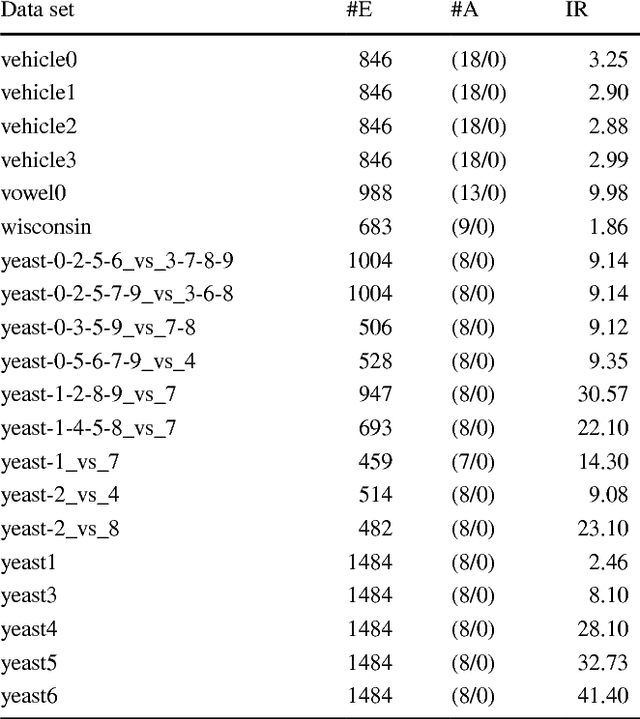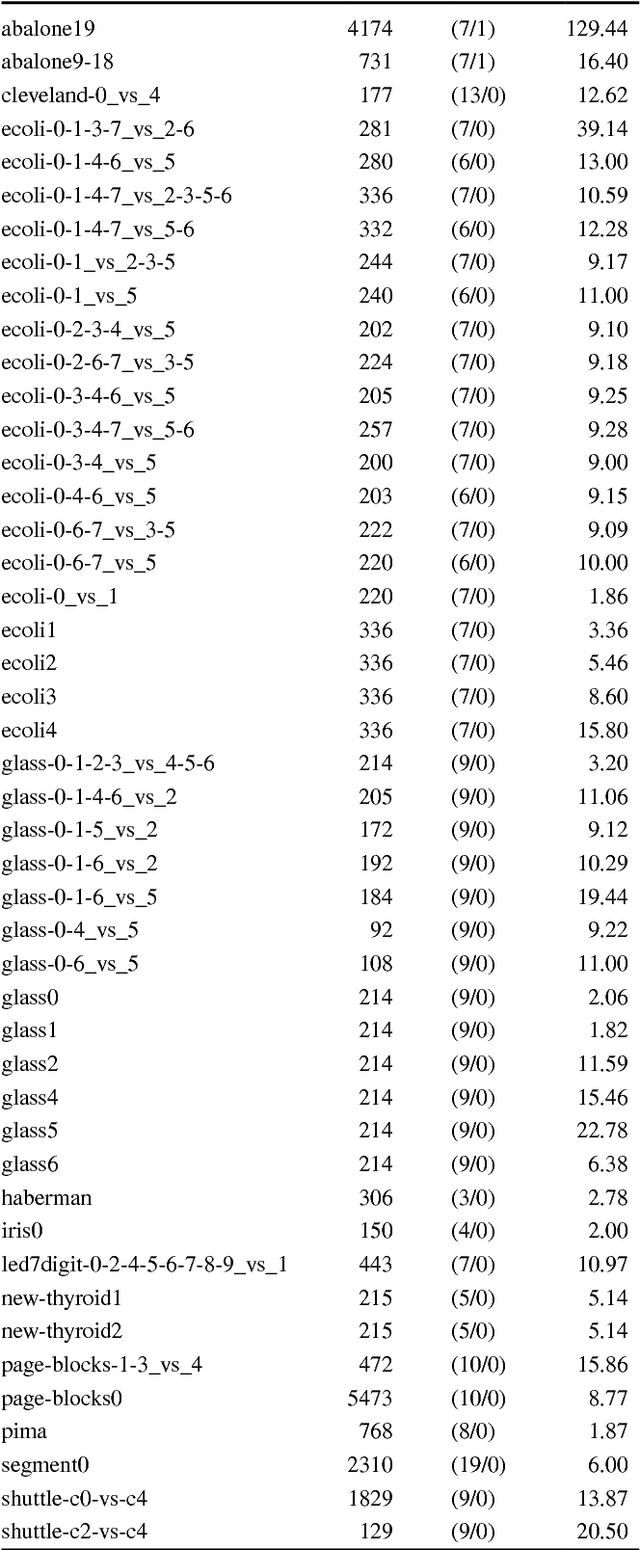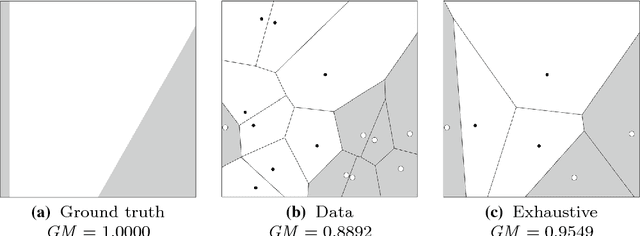Instance Selection Improves Geometric Mean Accuracy: A Study on Imbalanced Data Classification
Paper and Code
Apr 19, 2018



A natural way of handling imbalanced data is to attempt to equalise the class frequencies and train the classifier of choice on balanced data. For two-class imbalanced problems, the classification success is typically measured by the geometric mean (GM) of the true positive and true negative rates. Here we prove that GM can be improved upon by instance selection, and give the theoretical conditions for such an improvement. We demonstrate that GM is non-monotonic with respect to the number of retained instances, which discourages systematic instance selection. We also show that balancing the distribution frequencies is inferior to a direct maximisation of GM. To verify our theoretical findings, we carried out an experimental study of 12 instance selection methods for imbalanced data, using 66 standard benchmark data sets. The results reveal possible room for new instance selection methods for imbalanced data.
 Add to Chrome
Add to Chrome Add to Firefox
Add to Firefox Add to Edge
Add to Edge